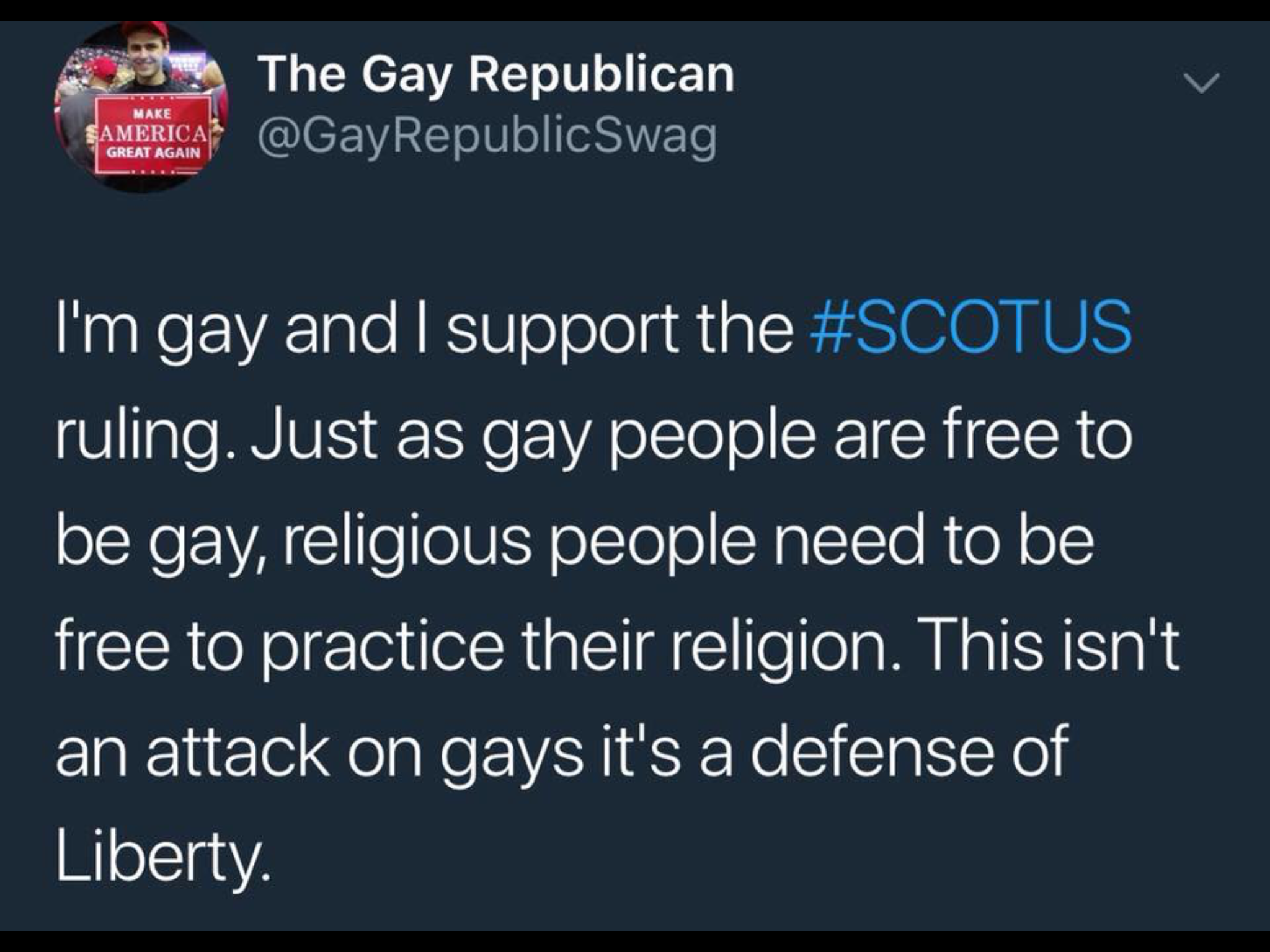Show me in the Bible where it states blacks and whites marrying is wrong?
Can you show me in the Bible where Jesus refuses to repeatedly serve the sinners amongst him?
I know this falls under the scope of upholding freedom of religion, but with this instance being subject to a Christian based decision of the part of the Baker, i’d argue this ruling from a Christian perspective is a ruling that is freedom from religion.
A lot of Christians are walking a very twisted line with singling out homo sexuals. Let’s call it a real inarguable sin (even though Jesus never really speaks of it), because everything we do is inarguably sinful. Some Christians are still stuck trying to earn salvation through some sort of moral hierarchy of sin. And homosexuality tops the list even though it’s significance is no different than a heterosexual lusting/coveting over attractive females or males. But lots of Christians can emphatically say they are free of the homosexuality sin. One of the very few that you are either committing or not committing. No wondering there, no gray area there. No inner turmoil that leads one to justify that you only sinned just a little bit, so only 1/4 guilty. so it makes them feel better about themselves. A gay person is 100% convicted.
I wonder if the baker would have denied an atheists request for a cake for a wedding celebration? Or denied the couple who is getting remarried after their first marriages failed due to adultery? My guess is probably not. Those are ‘forgivable’. Not homsexuality.
But to the freedom ‘from’ religion thing. Before Jesus scarficed himself for all of our sins, he knew he was about to be denied by his closest of disciples, Peter. He was about to be fully betrayed by another disciple, Judas. Both, if we are keeping earthly score, could be be considered categorically more catastrophic sins to Jesus and God than being homosexual. Yet, the night before, instead of condemning them, he shared the same room with them, ate dinner with them and washed their feet. Symbolically cleaning them of their earthly stains. At the time, it was considered the ultimate form of servitude.
So If all Christians claim that they love Jesus for what he’s done for us, the irony is that we still act contrary his very life of serving the lowest of the low. Denying a service based on a Christian religious belief is the exact opposite of what Jesus, our savior we worship, did. It is in conflict with his gospel ministry.
It’s not an acceptance of sin. It’s an acknowledgment of the tragedy of sin. So you could argue, from a Christian perspective, we might actually need a law telling us how we should treat people if Christianity is the sole basis for such a decision as the baker’s.
I’m not touching on it lawfully, i’m Speaking on behalf of the ‘win for Christianity’. Refusal to serve someone because of sexual orientation seems bigoted to me, and i don’t know how it can be anything other than that. But there are Many Christians that really enjoy lumping it in as a ‘religious belief’ to cover the bias. It’s the crutch of all crutches.
I get it. Not sure anyone can be fully free of degrees of bigotry or bias. That’s the depth to which we suck as a people. the far left agenda is searching for an agenda that we as people are incapable of achieving. The far right Christian agenda is one that is in stark contrast to the God in which they claim to serve.
It’s why Christians believe and serve in a savior, Jesus. Because his life, death and most importantly, resurrection, freely gives us a salvation that we are incapable of achieving. Whether homosexual, adulterer, a failure in loving our neighbor as ourself, loving our god with all our heart, mind and soul, etc.


